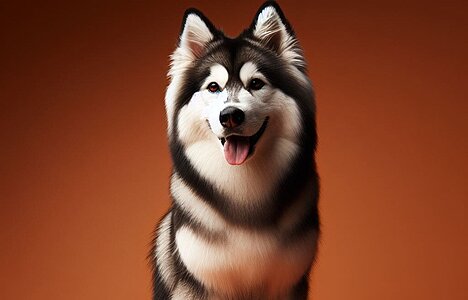Attribute "Not suitable as a guard dog"

Why some dog breeds are not suitable as guard dogs
Dogs are loyal companions who stand by our side in many situations. However, not every four-legged friend is equally suited to every task. While some breeds are known as excellent guard dogs, there are also some that simply can't do the job. But what does it actually mean when a dog breed is described as "not suitable as a guard dog"? In this article, we get to the bottom of this and explain why some dogs simply prefer cuddling to guarding.
What does "not suitable as a guard dog" mean?
When a dog breed is described as "not suitable as a guard dog", this refers to certain character traits and behaviors that these dogs possess. A guard dog should primarily protect your home and you from possible intruders. To do this, they need certain qualities such as alertness, protective instincts and courage. However, not all dogs have these qualities to the same extent. Here are some characteristics that explain why a dog may not be suitable as a guard dog:
1. friendly and social nature
Dog breeds that are considered particularly friendly and social are often not the best guard dogs. They tend to see every human as a potential friend rather than a possible threat. Dogs like the Golden Retriever or Labrador Retriever are known for their open and friendly nature. They often greet visitors with a tail wag and a wet nose nudge rather than a warning bark.
2. low territorial aggression
A good guard dog shows some territorial aggression. He considers your home his own territory and will defend it. However, some dog breeds, such as the Cavalier King Charles Spaniel or the Basset Hound, have a lower territorial instinct. They generally feel comfortable anywhere and see no reason to aggressively defend their home.
3. low energy level
Guard dogs need energy and stamina to stay alert. Breeds with lower energy levels, such as the English Bulldog or Pug, tend to be more relaxed and leisurely. They prefer to spend time dozing and relaxing rather than standing on guard for hours on end.
4. low reactivity
A good guard dog reacts quickly to unusual noises or movements. However, some dogs are naturally less reactive and tend to remain calm in stressful situations. The Bernese Mountain Dog or the Irish Setter are examples of breeds that tend to react more calmly and are therefore less suitable for use as guard dogs.
Why is this important to know?
It's important to understand these characteristics when you're considering which dog to get. If you are looking for a loyal companion to protect you and your family, you should choose a breed that is known for its alertness and protective instincts. However, if you're looking for a loving family dog that gets along well with children and other pets, the above characteristics could be just right for you.
The right dog for the right job
Not every dog is suitable as a guard dog, and that's perfectly fine. Just like us humans, dogs have different personalities and abilities. It's important to recognize the strengths and weaknesses of each breed and choose a dog that fits your lifestyle and needs. Guard dog or not, each dog brings its own unique joy and love to your life. And in the end, that's what really matters.
